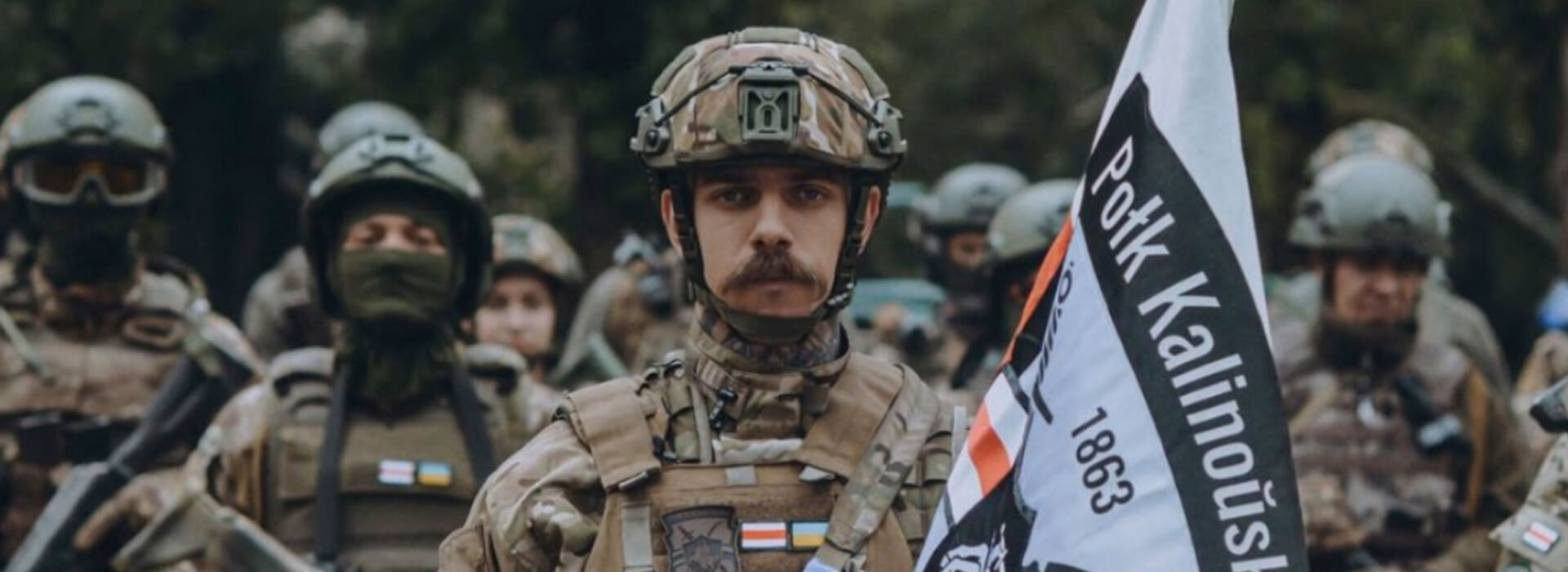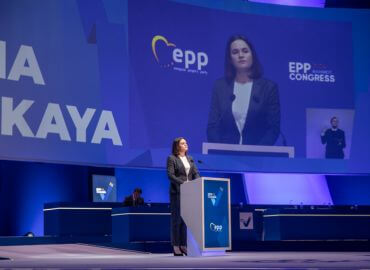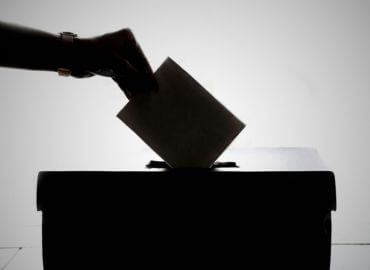Putin announced mobilization in Russia, what's next for Belarus?
Immediately after Putin’s announcement of mobilization in Russia, Lukashenka’s «State Secretary of the Security Council» gen. Aliaksandr Valfovich, met with his vis-a-vis from Moscow, Nikolai Patrushev. Valfovich publicly declared that «the people of Belarus and the country are already mobilized». In the same statement, he declared that mobilization «is not on agenda» in Belarus, and current number of troops is enough «to defend Belarus» (or, more precisely, defend the regime of Aliaksandr Lukashenka). Patrushev, however, publicly stated that Belarus will support the activity of Russia in Ukraine creating enough space for speculations.
Despite Lukashenka’s immediate interest to decrease Russia’s military presence in Belarus to maintain his own control, he illegally extended Russian free use of two Belarusian military facilities in Baranovichi and Vileika for another 25 years. The previous agreement defining the use of these military facilities was signed in 1995. It expired in May 2021 – already after Lukashenka lost his official status and international recognition. Since May 2021, Russia kept its military presence in both Baranovichi and Vileika despite any legal rights to do so (which, essentially, is another element to support legal claim that Belarus must be internationally recognized as an occupied territory).
In the last couple of days, Lukashenka arranged a few meetings with his top military officers, including a secret meeting with the «minister of defense» where they discussed the questions of defense: Lukashenka is particularly worried about the risk of «liberation march» of Belarusian volunteers who currently fight in Ukraine. State propaganda, however, is more interested in promotion of narratives claiming Polish plans to occupy Western Belarus to regain «kresy» – the territories lost in 1939 (which is absolutely not the case).
Although some foreign media interpret the latest military moves by Lukashenka as a preparation of joint Russo-Belarusian offensive in Ukraine, it is more likely that the primary goal of self-declared «president of Belarus» is to avoid participation in any land invasion and ensure continuous control of the territory of Belarus to secure his own shaky rule. Following shameful collapse of joint military invasion in February 2022, Lukashenka fully understands that his army is even less equipped and prepared than Russia’s troops that were humiliated on many occasions in the last 7 months. Recent effort to introduce the «people’s militia» in Belarus was a mocking PR disaster. Instead of «terminations-to-be» pro-Lukashenka media showed elderly peasants and workers dressed in fishing suits and tuxedo shoes. It looks like Lukashenka completely understands real in capacity of his army and will do everything possible to avoid (or delay as much as possible) the participation of his troops in land operation against Ukrain. So far, he may still offer disruptive migrant attacks on Belarus-EU border and never-ending military exercises along the border with Ukraine.
However, Lukashenka may be forced to provide Putin with at least two new services in the aftermath of mobilization. The first one is, possibly, sealing the [non-existent] border for 18-65 males searching escape from mobilization in Russia. The second is more sophisticated and risky. Lukashenka may potentially provide Russia’s army with military «advisors» (such as mid-level military commanders from Belarusian army, or urgently «commissioned» officers) to help Russian troops that sustained significant losses of mid-level officers and still suffer from serious problems with battle management. The latter option may be a sufficient initial solution to potential call for action within CSTO framework if Russia will manage to organize «annexation referenda» in the occupied territories of Ukraine and will consider Ukraine’s subsequent efforts to liberate them as «attack on Russia».
The scale of international sanctions and international isolation of Belarus have already turned current civilian and military administration into «international pariah». Although Lukashenka may verbally claim «establishing all-weather comprehensive strategic partnership» with China, lasting economic and social instability in Belarus affects once-promising Belt and Road cooperation. The implementation of the Agreement on Economic and Trade Cooperation between the PRC and the Eurasian Economic Union is, too, unlikely enough to sustain the costs of sanctions. Although the regime in Minsk is making media efforts to mock the West and anti-Russia sanctions, the economic perspectives of Belarus for this year remain pessimistic as private business continues its exodus, country’s financial ratings reach default, and foreign trade shrinks by 24% (but remains afloat due to rising prices of raw materials and difference in exchange rates for BYN and RUB).
However, purely symbolic steps (such as suggested bans from soccer competitions) are not enough to increase the leverage on Lukashenka and, more importantly, his entourage and bureacracy. Two years into the crisis, it seems like the West is still missing defined foreign policy goals on Belarus and against Lukashenka – as well as clear understanding that Belarus is not Russia to the same extent that Ukraine, Lithuania, Czech Republic or Poland are not Russia. Without clear definitions, goals and sufficient political will to resolve Lukashenka’s case, both Belarusians (including children) and neighboring (as well as remote) nations will be exposed to toxic influence of the same tyranny that Belarus has remained under Lukashenka control for almost three decades now – as it continues to imposes repressive practices on all areas of public and personal life inside Belarus and seeks to further expand cross-border repressions globally.
In given circumstances, it is ultimately important to «not put the regime and the Belarusian people into one basket», as noticed by Sviatlana Tsikhanouskaya, and refrain from «carpet» entry bans for Belarusians to the West. The West must help Belarusians fight Moscow-led puppet administration and should refrain from «buying» a narrative distributed by certain authors in the West that «repressions in Belarus have slowed». Arrests and torture of activists never stopped and all social groups across the country remain targets of politically-motivated repressions as the number of acknowledged political prisoners has already exceeded 1340 civilians. Lukashenka regime has done no steps to positively change its behavior since 2020 – instead it continues the largest campaign of state terror in the last 50 years of European history. And the West is sometimes playing the role of facilitators of repressions without knowing about it. Despite the efforts of activists, international hi-tech companies (including Google) – intentionally or not – help Lukashenka’s propaganda outlets and the Kremlin increase their presence in Belarusian media landscape while simultaneously depreciating Belarusian independent media.
Best regards,
iSANS team










